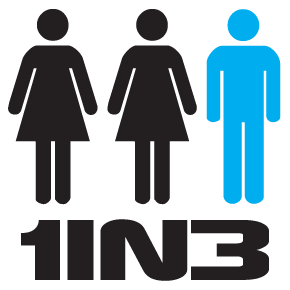A response by 1IN3 to media commentary by domestic violence organisations for ABC TV Media Watch

A recent episode of ABC TV’s Media Watch on 2nd March 2020 covered the story of media commentator Bettina Arndt’s controversial comments about the tragic murder of Hannah Clarke and her children, and their resulting condemnation by media and government alike.
As part of the ABC’s investigation, comment was requested from three of the top government-funded domestic violence organisations in Australia – ANROWS, Our Watch, and Domestic Violence NSW. These three agencies all operate from a feminist framework dealing exclusively with female victims and their research is tailored to that end. The ABC neglected to contact the One in Three Campaign – an unfunded volunteer organisation, but the only agency in Australia established to support male victims of family violence.
The ABC put the following question to each organisation:
Is Bettina Arndt correct in saying “our official statistics show at least a third of victims of domestic violence are male”? Does this statistic reflect the reality of the problem of domestic violence in Australia?
The responses contained errors, omitted relevant data, were frequently unreferenced, and appeared to be written in order to downplay and minimise the experience of male victims of family and domestic violence in Australia.
We are extremely concerned that three of the top government-funded domestic violence organisations in Australia felt the need to dispute Ms Arndt’s claim, based on robust data from the ABS and multiple other sources, that at least a third of victims of domestic violence are male.
There is no need to attack, downplay or minimise the experience of male victims in order to support female victims. In the eleven years One in Three has been operating, we have consistently advocated for increased support for female victims of family and domestic violence, alongside our calls for better awareness of and support for male victims.
We believe our society has the capacity to support all victims of family violence, whether young or old, male or female, gay or straight, rich or poor, wherever they live.
You can download a PDF copy of One in Three's full analysis from here.
